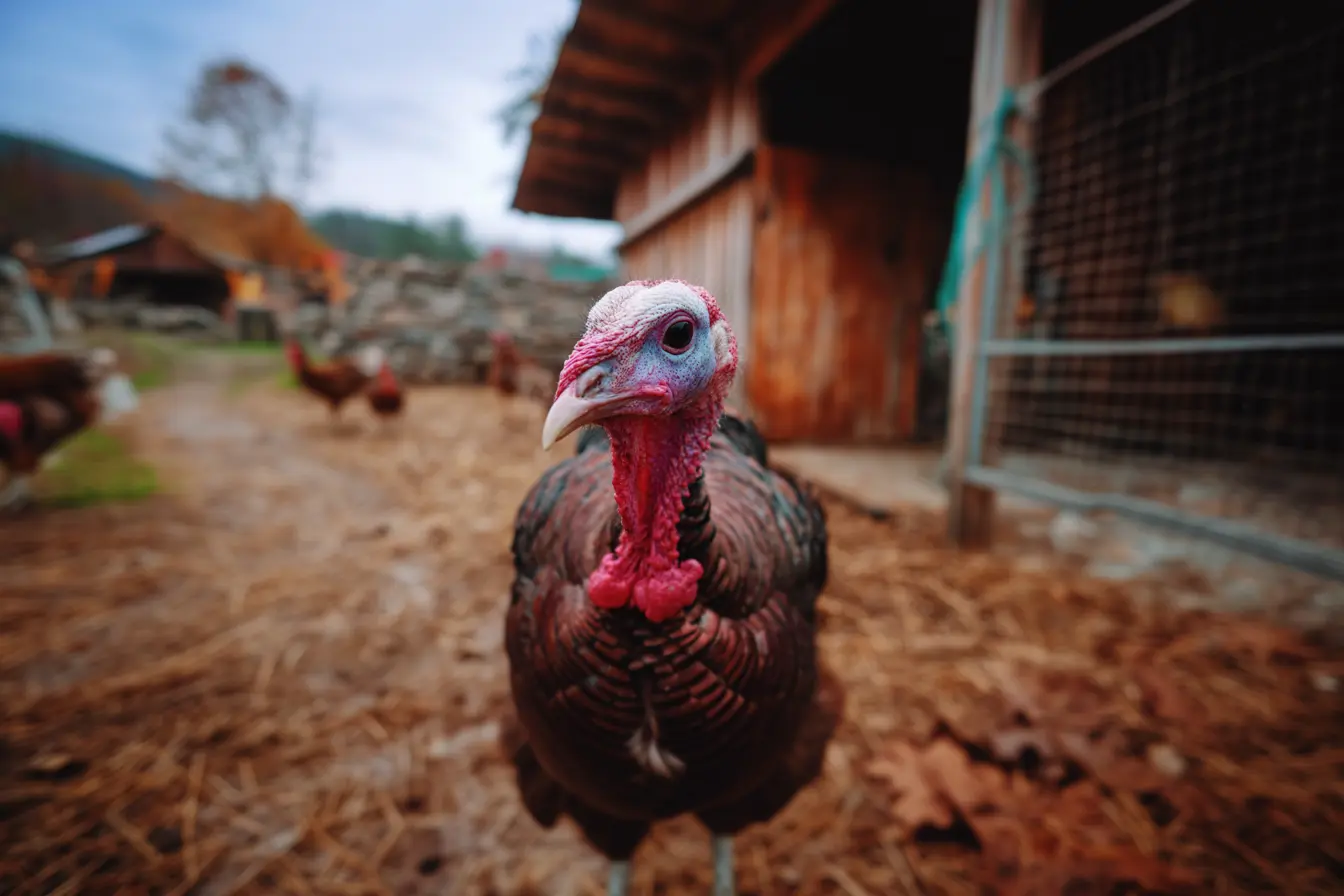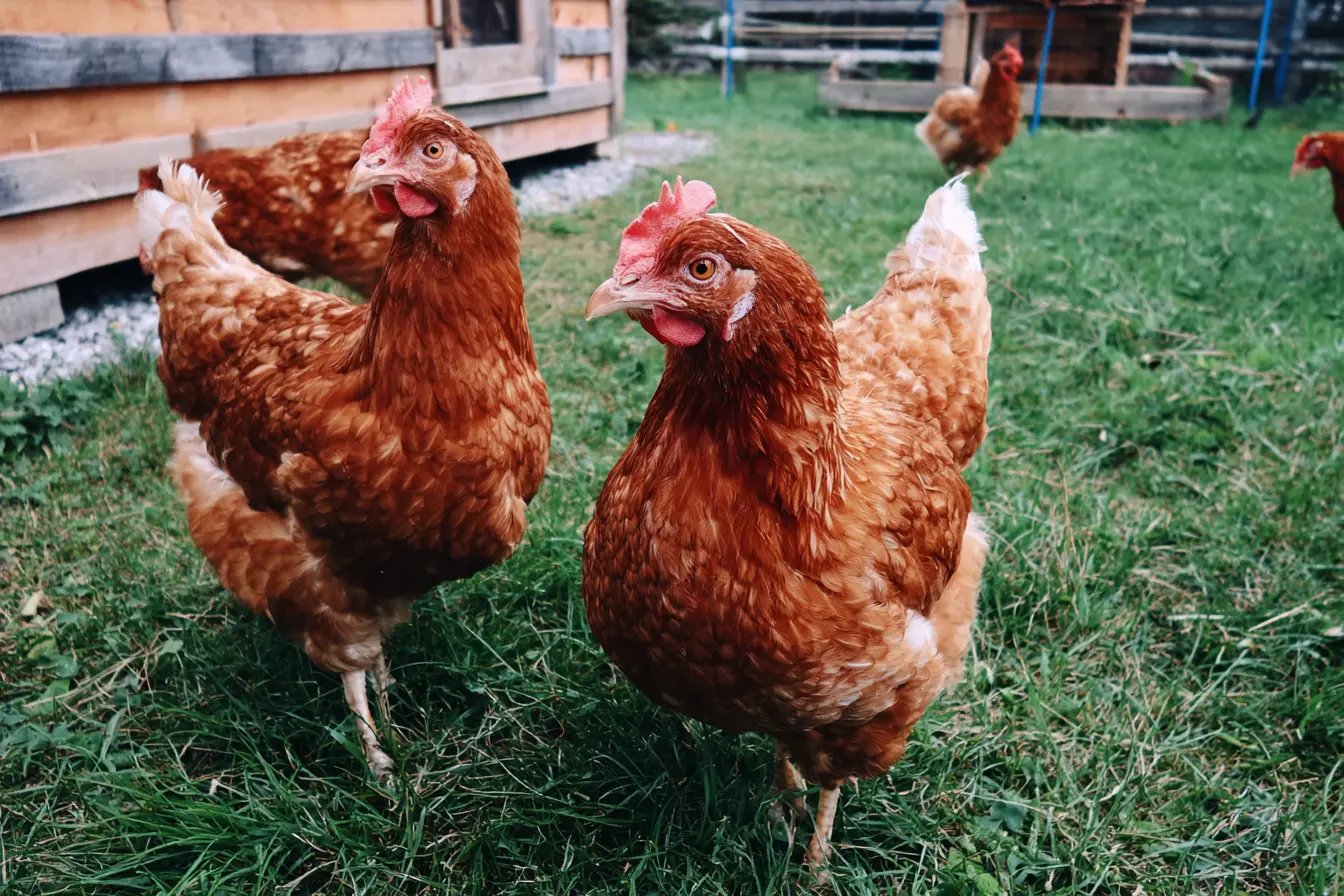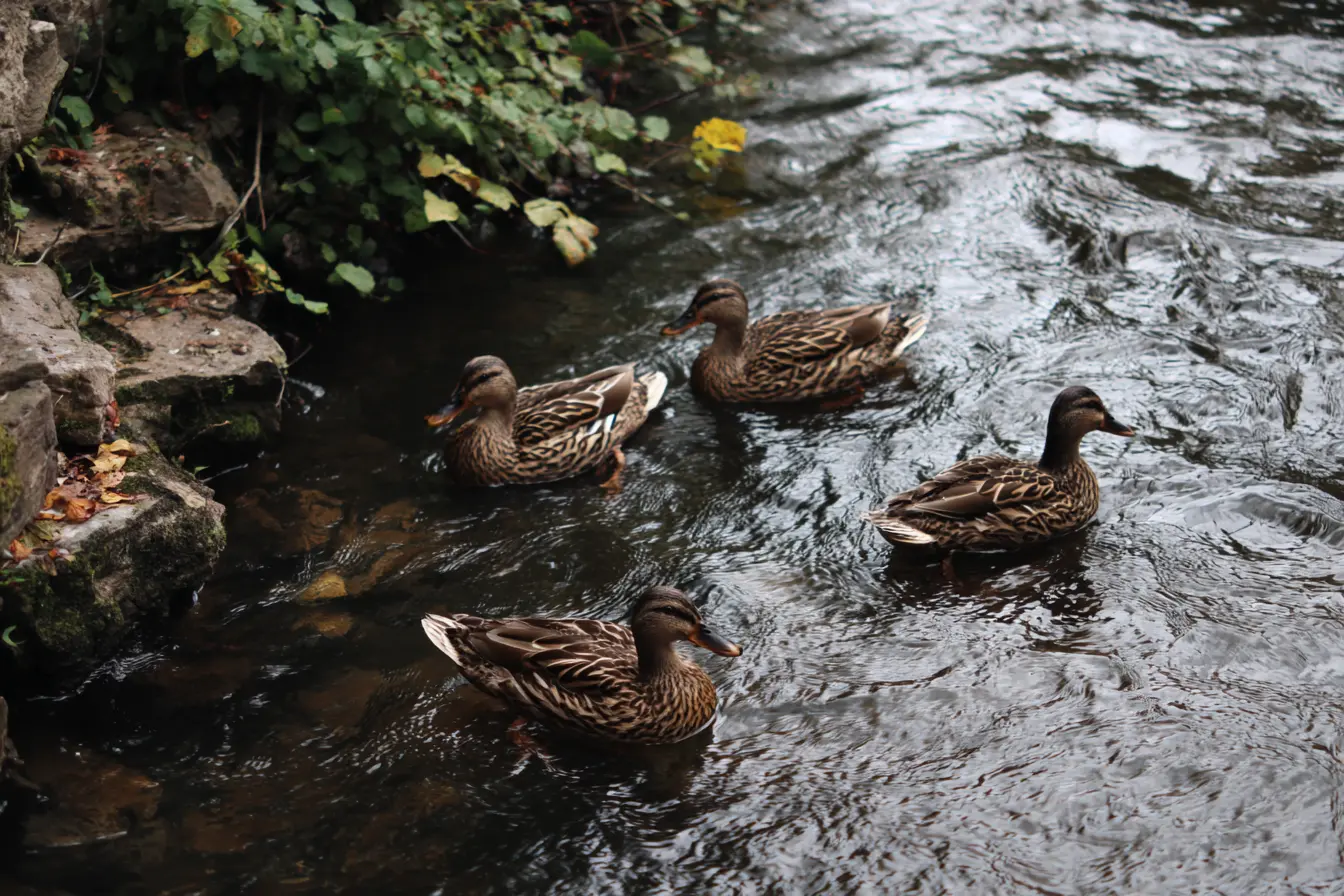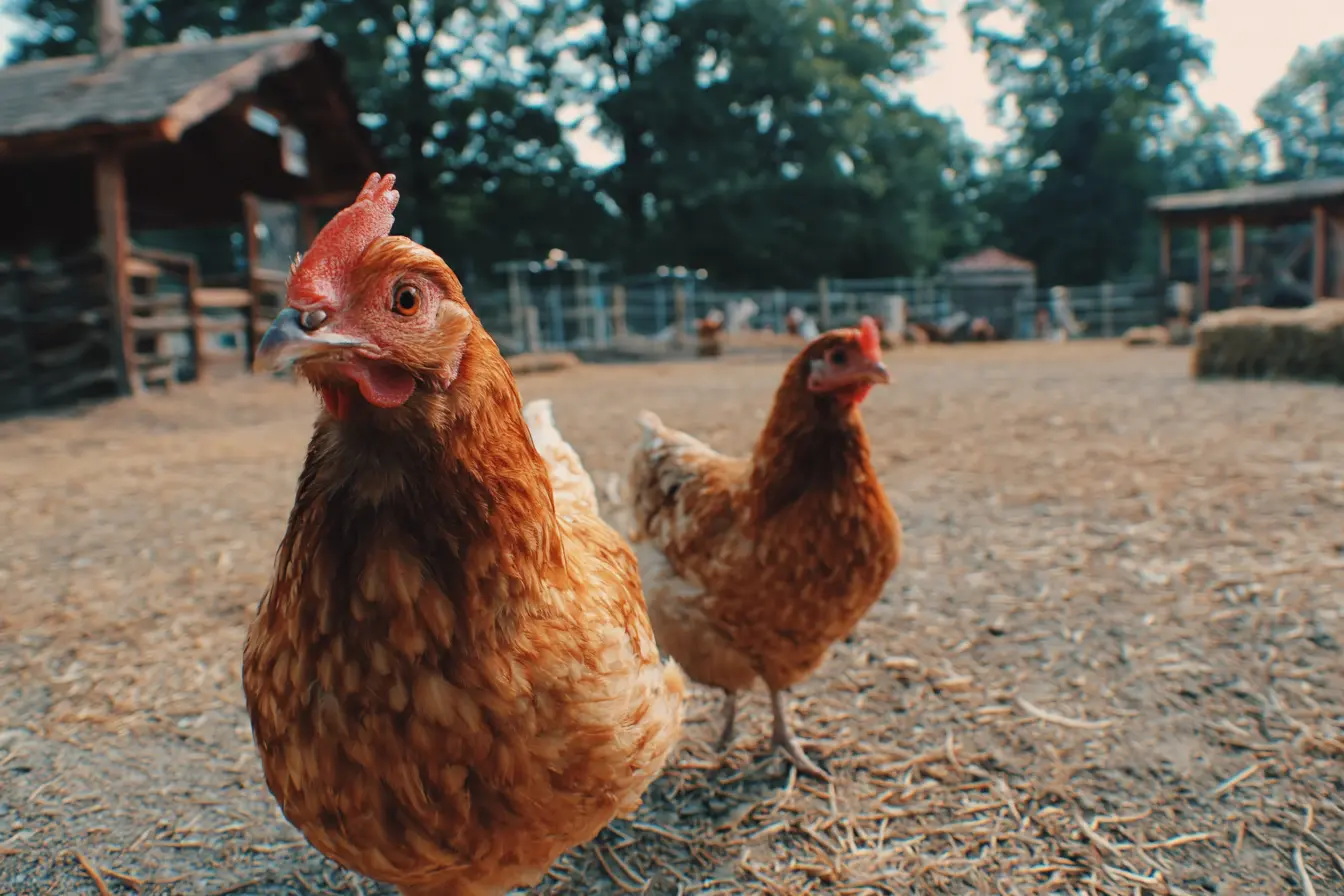
Common Health Conditions in Geese: A Detailed Guide for Keepers
Geese are hardy and resilient birds, well-suited to life in various climates and settings. They are often easier to care for than chickens or ducks, but like all livestock, they can suffer from certain health conditions. Recognising early signs of illness and practising preventative care are vital to maintaining a healthy, productive flock.
This comprehensive guide outlines the most common health problems that affect domestic geese, along with rare but serious diseases, and how to deal with them effectively.
Bumblefoot
Overview
Bumblefoot (pododermatitis) is a common bacterial infection affecting the feet of geese. It occurs when bacteria enter through small cuts or abrasions, often caused by walking on rough or wet surfaces.
Symptoms
- Limping or reluctance to walk
- Swelling and redness on footpad
- Presence of a scab or abscess
Causes
- Rough or uneven terrain
- Prolonged exposure to wet ground
- Obesity
Treatment
- Clean the affected area with antiseptic
- Apply antibiotic ointment and bandage if possible
- Severe cases may require veterinary intervention
Prevention
- Provide soft, dry bedding
- Rotate grazing areas to avoid mud build-up
- Encourage foraging to prevent obesity
Respiratory Infections
Overview
Respiratory infections in geese can be caused by bacteria, viruses, or fungi and are most common in damp, cold, or poorly ventilated conditions.
Symptoms
- Sneezing or coughing
- Nasal discharge
- Gurgling or rattling breath sounds
- Lethargy and reduced appetite
Causes
- Mouldy bedding or feed
- Poor ventilation
- Sudden weather changes
Treatment
- Isolate the affected bird
- Administer antibiotics if bacterial
- Provide warmth and clean environment
Prevention
- Ensure dry and well-ventilated housing
- Use dust-free bedding
- Maintain consistent temperatures
Gapeworm
Overview
Gapeworm is a parasitic worm that lodges in the trachea and causes respiratory distress in geese.
Symptoms
- Gasping or “gaping” for air
- Stretching neck
- Wheezing or head shaking
- Weight loss
Transmission
- Ingestion of intermediate hosts such as earthworms or snails
Treatment
- Use appropriate anthelmintics (dewormers)
- Isolate and treat affected geese
Prevention
- Avoid overgrazed or snail-infested pastures
- Deworm regularly, especially in wet seasons
Aspergillosis
Overview
Aspergillosis is a fungal respiratory infection caused by Aspergillus spores, typically from mouldy feed or bedding.
Symptoms
- Open-mouthed breathing
- Weakness and lethargy
- Weight loss
- Death in advanced cases
Causes
- Inhaling fungal spores from mouldy straw, grain, or litter
Treatment
- Remove mould sources immediately
- Provide antifungal medication as prescribed by a vet
- Supportive care with fluids and warmth
Prevention
- Store feed and bedding in dry conditions
- Replace damp bedding frequently
- Improve ventilation
Avian Influenza
Overview
A notifiable disease that can severely affect geese and other poultry. Highly contagious and potentially fatal.
Symptoms
- Sudden death
- Swelling around head and eyes
- Respiratory distress
- Green diarrhoea
- Nervous signs (tremors, twisted neck)
Transmission
- Wild birds are major carriers
- Spread through droppings, saliva, and contaminated water
Treatment
- No cure
- Notify animal health authorities immediately
- Affected birds may need to be culled
Prevention
- Keep geese away from wild birds
- Practise strict biosecurity
- Disinfect equipment and footwear
Pasteurellosis (Fowl Cholera)
Overview
Pasteurellosis is a bacterial infection affecting adult geese, particularly in wet, muddy environments.
Symptoms
- Sudden death without symptoms
- Lameness
- Swollen wattles and face
- Mucus discharge from beak
Causes
- Contaminated water or feed
- Spread by rodents and wild birds
Treatment
- Antibiotics such as sulphonamides
- Isolate and treat affected birds promptly
Prevention
- Keep housing and water clean
- Control rodents and wild bird access
- Vaccinate where outbreaks have occurred
Egg Binding
Overview
Egg binding occurs when a goose is unable to lay an egg, which can become fatal if not treated.
Symptoms
- Straining and restlessness
- Swollen or firm abdomen
- Lethargy
- Loss of appetite
Causes
- Calcium deficiency
- Obesity
- Dehydration
Treatment
- Warm baths and gentle massage
- Calcium and vitamin supplements
- Veterinary intervention if the egg is retained
Prevention
- Provide a diet rich in calcium and balanced nutrients
- Ensure access to clean water
- Maintain a healthy weight
Vitamin Deficiencies
Overview
Geese require a well-balanced diet to avoid issues related to vitamin deficiencies, particularly vitamins A, D, E, and B-complex.
Symptoms
- Twisted neck (vitamin E deficiency)
- Weak legs or paralysis (niacin deficiency)
- Poor feather quality
- Reproductive issues
Treatment
- Supplement with appropriate vitamins
- Review and improve diet quality
Prevention
- Use commercial waterfowl pellets or balanced rations
- Add fresh greens and grains
- Avoid over-reliance on bread or human food
Worm Infestations
Overview
Geese can harbour several types of internal parasites, including roundworms and flukes.
Symptoms
- Poor weight gain or weight loss
- Diarrhoea
- Pale mucous membranes
- Poor feather condition
Treatment
- Routine deworming with poultry-safe medications
- Faecal testing by a vet if infestation is suspected
Prevention
- Rotate pastures
- Keep water sources clean
- Remove faeces regularly
Feather Pecking and Cannibalism
Overview
Though less common in geese than chickens, feather pecking can occur due to stress or dietary deficiencies.
Symptoms
- Bald patches
- Bleeding wounds
- Aggressive behaviour
Causes
- Overcrowding
- Nutrient deficiencies
- Boredom
Treatment
- Isolate aggressive individuals
- Treat wounds with antiseptic
- Improve diet and provide enrichment
Prevention
- Provide ample space and forage
- Add greens or hanging treats
- Avoid protein imbalances
Rare and Notifiable Diseases in Geese
Riemerella Anatipestifer (New Duck Disease)
- Affects geese similarly to ducks
- Neurological symptoms and sudden death
- Requires antibiotics and biosecurity
Tembusu Virus (Duck Egg Drop Syndrome)
- May affect geese in mixed flocks
- Spread by mosquitoes
- Egg production drops dramatically
Goose Parvovirus (Derzsy’s Disease)
- Affects goslings under 4 weeks
- Symptoms include diarrhoea, weakness, and sudden death
- Highly contagious and fatal
- Vaccination is key in endemic areas
Avian Tuberculosis
- Chronic wasting disease
- Transmitted via contaminated soil and faeces
- Zoonotic potential (rare in humans)
- No treatment; cull affected birds
West Nile Virus
- Spread by mosquitoes
- Neurological symptoms: tremors, seizures
- No treatment; supportive care only
- Prevention through mosquito control
Conclusion
While geese are generally robust and low-maintenance birds, they are still vulnerable to a range of diseases, some common and others more serious or rare. Good nutrition, proper hygiene, regular observation, and prompt treatment are the best ways to keep your flock in excellent health.
Always consult an avian vet if you notice unusual behaviour, persistent symptoms, or signs of distress. Prevention is key—but early intervention can save lives and prevent the spread of illness across your flock.
Vets near you
Speciality vets
- Aquatics vet specialists
- Birds vet specialists
- Camelids vet specialists
- Cats vet specialists
- Cattle vet specialists
- Deer vet specialists
- Dogs vet specialists
- Equines vet specialists
- Exotic vet specialists
- Goats vet specialists
- Pigs vet specialists
- Poultry vet specialists
- Sheep vet specialists
- Small Mammals vet specialists
- Wild vet specialists
Vet facilities
- Accessible by public transport
- Blood testing
- Car park nearby
- Client car park
- Dentistry
- Diagnostic imaging
- Disabled public access
- Flea and worm treatments
- Microchipping
- Mobile services
- Neutering
- Open at weekends
- Out-of-hours service
- Referral interests
- Referrals only
- Street parking outside
- Toilets available
- Vaccinations



